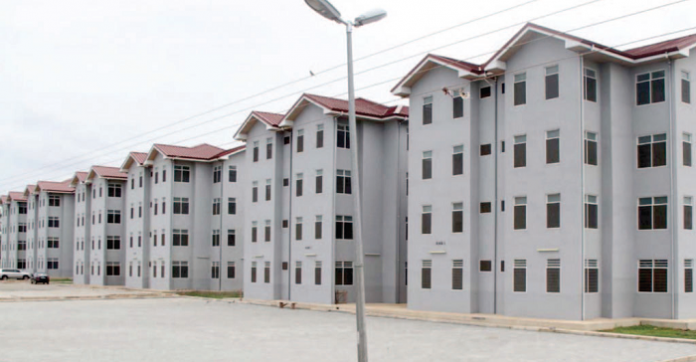Ghana’s housing deficit hits two million – Housing Minister
Ghana’s housing deficit has hit two million units. This was revealed by the Minister for Works and Housing, Samuel Atta Akyea.
By this, the government would have to build 190,000 to 200,000 units of houses each year for the next 10 years to bridge the gap.
This is expected to cost around US$3.4 billion for the 200,000 units.
The government announced an ambitious plan to establish a GH¢1 billion mortgage and housing finance to leverage private capital while providing affordable housing for Ghanaians.
The fund is also to help bring down the housing deficit.
Though the plan was announced in the 2019 Budget Statement and Economic Policy presented by the Finance Minister, Mr Ken Ofori-Atta, the government is yet to implement it.
Addressing the media, Mr. Atta Akyea who confirmed that the housing deficit has reached 2 million units explained that there must a long term measure to solve the problem.
“Unfortunately, this is a sorry situation in which we find ourselves. No wonder we are struggling with a housing deficit which is now in excess of 2 million housing units,” he revealed.
To this end, the minister has inaugurated a national housing committee on affordable housing.
While inaugurating the board, Mr. Atta Akyea charged members to work resiliently to help bridge the housing gap.
The Committee members have till October 2020 to come up with relevant solutions to the housing crises.
The Committee chaired by Mr Samuel Atta Akyea, the sector Minister and supported by the Deputy Minister, Mrs Barbara Asher Ayisi, is tasked among other duties to identify and create land banks and help with land acquisition.
It is also expected to develop a policy to promote the building of communities and ensure equitable distribution of affordable houses, oversee infrastructure development such as roads, water and electricity connections to new sites and implement the social housing component.
The Committee is made up of representatives from the Ministries of Finance and Roads and Highways as well as the Architects Registration Council, Public Servants Housing Loan Scheme Board, Rural Housing Department, and Architectural and Engineering Services Limited.
Other representatives were from the Ghana Real Estate Developers Association, Ghana Water Company Limited, Power Distribution Services Ghana, and the Lands Commission.
–
Source: citibusinessnews


